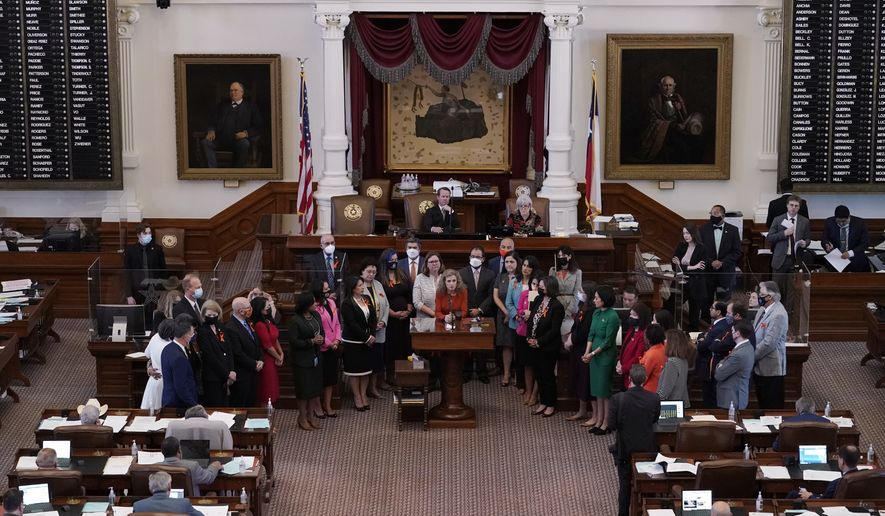A Texas law banning abortions after six weeks went into effect Wednesday after the Supreme Court did not intervene to block it this week.
The law prohibits abortions after a fetal heartbeat is detected, usually around six weeks of gestation. Abortion providers challenged the legislation, arguing that most women do not even know they are pregnant at that time.
The legislation is unique in that it allows private citizens — not government officials — to sue abortion providers for violating the law.
Pro-choice activists on Monday asked the justices to halt it from taking effect, arguing it is unconstitutional.
The Center for Reproductive Rights, the American Civil Liberties Union and allied groups launched the lawsuit this year to block the legislation, saying it would force abortion providers to spend massive amounts of money defending themselves in court and would subject them to harassment.
They argue that it runs afoul of Supreme Court precedent protecting a woman’s right to an abortion and would ban roughly 85% of abortions in the state, causing clinics to close.
They’re suing a number of defendants including state judges, clerks and Texas Attorney General Ken Paxton.
Texas Gov. Greg Abbott signed the law in May. Anyone who successfully sues someone who assists in an abortion after six weeks would receive $10,000.
The Texas defendants filed court papers Tuesday with the justices, arguing that the abortion providers lack standing to bring the lawsuit because they can’t show the defendants have caused them harm sufficient to get into court.
On Tuesday, a Travis County judge issued a restraining order against a group of pro-life advocates, preventing them from suing certain individuals.
Since the Supreme Court decided in 1973 that women had a right to abortion in the case of Roe v. Wade, pro-life advocates and conservative states have aimed to chip away at that ruling.
At least eight states have tried to ban abortion after six weeks, but none of those laws have gone into effect, according to the Guttmacher Institute, a pro-choice research group.
The Supreme Court has agreed to decide if Mississippi’s ban on abortion after 15 weeks runs afoul of its 1973 ruling in Roe v. Wade during its next term.
Texas has attempted to pass strict abortion restrictions in the past. In 2016, the high court struck down some of the states’ requirements on abortion providers but more than half of the state’s abortion clinics had to close before the justices stepped in, The Associated Press reported.
• Alex Swoyer can be reached at aswoyer@washingtontimes.com.




Please read our comment policy before commenting.